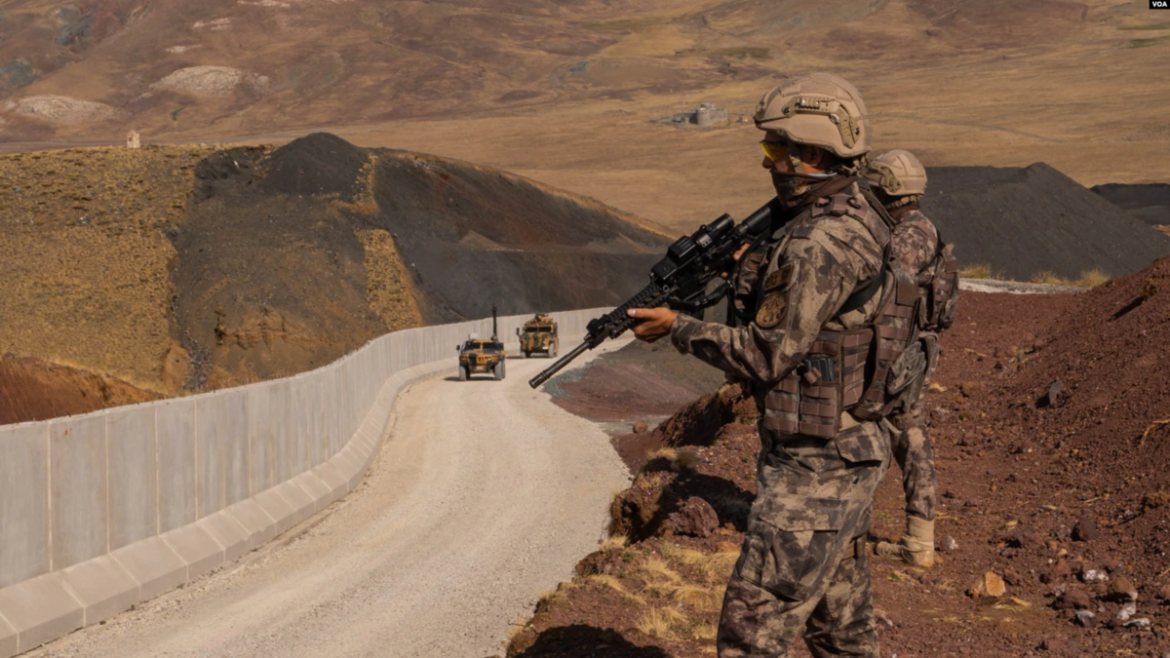The United Nations High Commission for Refugees (UNHCR) reports at least 3.6 million registered Syrians in Turkey, effectively making it the country hosting the most refugees globally. Turkey has held this title since the onset of the Syrian refugee crisis in 2015, a phenomenon catalyzed by the Syrian Civil War, which has displaced millions of Syrian citizens since it began in 2011. Turkey initially welcomed their Syrian neighbours, accepting almost four times as many refugees as the entire European Union (EU). However, as the war in Syria enters its eleventh year, compassion for Syrian refugees in Turkey has waned, while the EU’s refugee policies continue to resist amnesty. Beginning in 2016, the EU gave Turkey 3 billion euros, later doubled to 6 billion euros, for the express purpose of securing its borders with Syria against refugees. This placed a significant barrier between Syria and Turkey’s European border with Greece and Bulgaria. The resulting border wall, which began construction in 2015 and has been fully operational since 2018, has drawn concern from Human Rights Watch (HRW), among other human rights agencies, for abuses against asylum seekers and migrants along the militarized border.
In most cases, a displaced person must reach the land of another country in order to claim asylum. According to international law, if a person reaches another country’s territory, they have a right to file an asylum claim; if that claim is granted as per the country’s refugee policies, they are given refugee status within the country. In the case of Turkey, most Syrian refugees are not given full refugee status but are registered under “temporary protection,” which grants them access to basic services. Per the 1951 UN Refugee Convention, asylum seekers are protected from refoulement, i.e. they cannot be sent back to their country of origin if they face a legitimate fear of violence or persecution. However, states retain the right to create physical and administrative barriers to prevent asylum seekers from reaching their land. These barriers include administrative obstacles such as visa requirements to board planes and border controls or physical boundaries such as water, rough terrain, and border walls.
The EU is the preferred destination for many asylum seekers partly because of its relatively fluid borders between member states within the union. Since the start of the Syrian refugee crisis in 2015, 1 million Syrian refugees have been taken in by the EU member states, though quite unevenly: 59% are in Germany alone. However, after 2015 and its record number of asylum seekers arriving in Europe, the EU moved quickly to develop stronger border controls and enforcement. Part of this regime is the EU’s controversial 2016 negotiations with Turkey.
The EU recognized that many Syrian refugees were crossing the Syria-Turkey border, moving through Turkey, and then crossing the Turkey-Greece or Turkey-Bulgaria border to access the EU. In order to mitigate this, 6 billion euros were given to Turkey to limit the number of Syrian refugees entering its borders and, by extension, the EU’s borders. In exchange, the EU agreed to a reopening of negotiations for Turkey to become an EU member state. However, these negotiations were later suspended in 2019, citing the behaviour of Turkish President Recep Tayyip Erdogan.
Since August 2018, partially funded by the EU, Turkey has finished building a 3-meter tall border wall fortified with barbed wire, electric sensors, watch towers, and guards, which extends along much of its border with Syria and Iran. Officially, this border wall was meant to decrease migrant smuggling, which is when migrants or refugees pay a third party to help them cross borders. In reality, it has only increased smuggling because, in creating more substantial barriers, Turkey has only increased the need for migrants to seek such precarious pathways for refuge.
The border wall has also led to more violence in the crossing. Since it became functional, Human Rights Watch (HRW) has documented 237 migrant deaths and 231 injuries at the hands of the Turkish guards at the border wall, including women and children. Other asylum seekers are forcibly denied entry, beaten, and shot at indiscriminately. In April, 11 deaths and 20 injuries had already been recorded for 2023. These pushbacks increase the vulnerability of asylum seekers and migrants and, in turn, empower smugglers and gangs. In the case of the increasing number of Afghans trying to cross the border through Iran, the denial of entry has directly resulted in a return to Afghanistan or kidnapping and torture at the hands of Iranian gangs. These gangs often send messages back to the migrants’ families in Afghanistan, demanding money.
Concurrently, HRW has also reported a mass deportation of Syrian refugees from Turkey in October 2022, a move in line with President Erdogan’s announced plan to repatriate many Syrian refugees living in Turkey despite continuously unsafe circumstances in Syria. This deportation involved the roundup of hundreds of Syrian refugees who were subsequently coerced into signing voluntary departure forms before being forced across the border. This incident and the pushbacks at the border wall are serious violations of international law, which protects a refugee’s right to non-refoulement as well as the right to a “dignified and independent life” while living as a refugee in another country. Turkish officials have done little to investigate the reports pertaining to the border wall, and the Head of Migration Management, Dr. Savaş Ünlü, denies the HRW’s reports about forced deportations.
While Turkey and the EU states have the right to secure their borders against migrants, they do not have the right to commit human rights abuses. The issue of Turkey’s behaviour at its border wall has not drawn the notice or concern that it warrants from the EU or the international community. Furthermore, the EU partially funded the wall, it especially should be more active in condemning and correcting the deaths and abuses which have resulted from it.
Edited by: Lucy de Cartier

